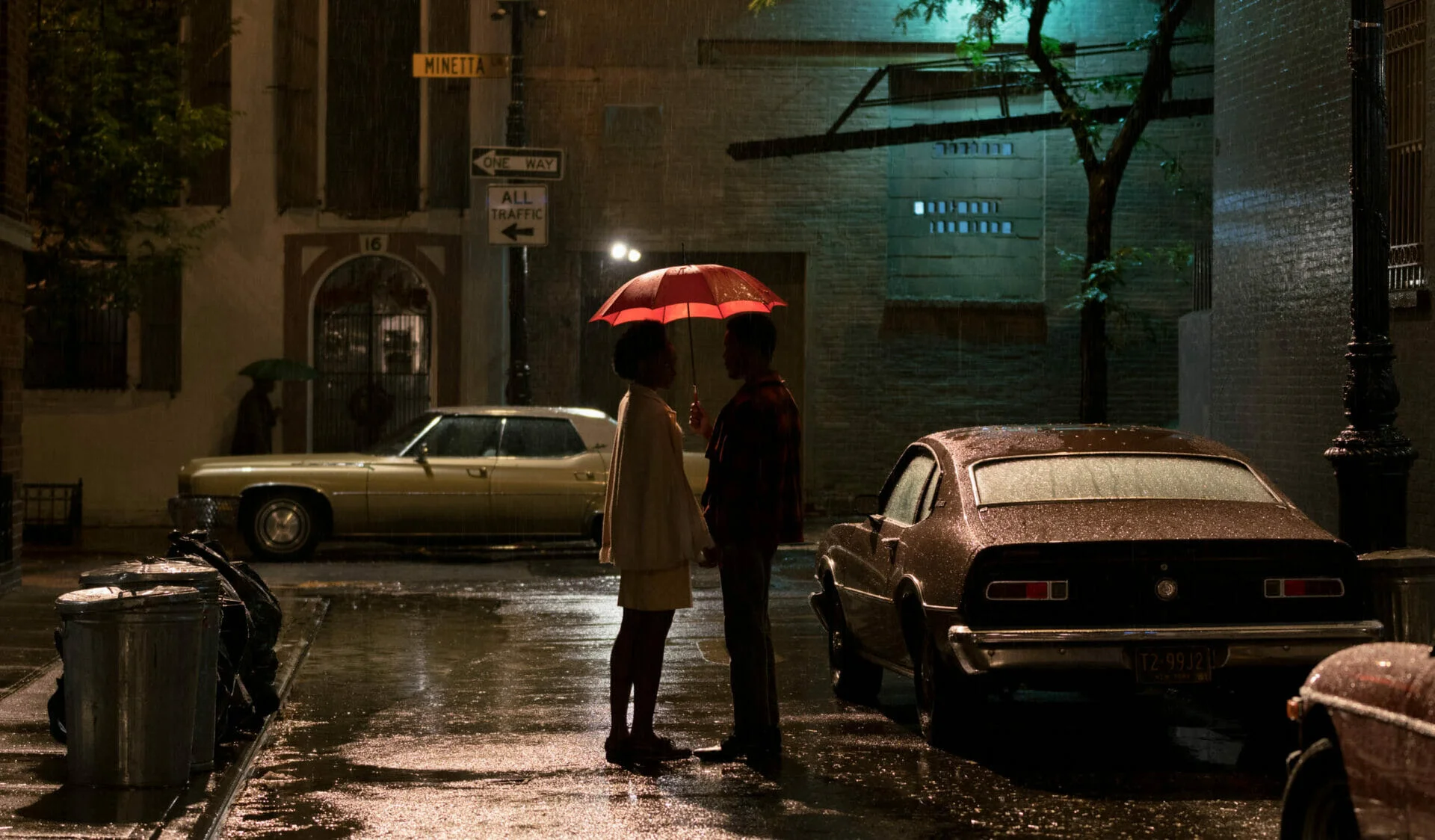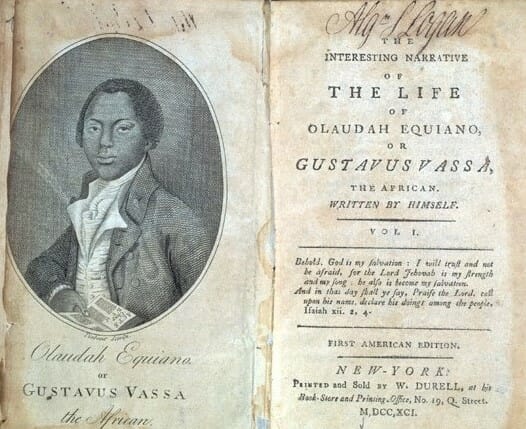
If Beale Street Could Talk | A story of ecstatic love
Year
Runtime
Director
Cinematographer
Production Designer
Music by
Country
Format
Genre
Subgenre
By
Tish and Fonny stand under a bright red umbrella at the end of Minetta Lane, in the Greenwich Village of the late 1970s. It is raining softly. They are young, and they are in love. This is a shot straight out of a golden-era melodrama, one of the Technicolor romances of Douglas Sirk or Vincente Minnelli. However, there is a pivotal difference, since Tish and Fonny are black.
The first-ever film adaptation of a fictional work by James Baldwin, Barry Jenkins’ If Beale Street Could Talk suffuses with moments like these, of visual poetry that invites the viewer into the pure, ecstatic love of the two protagonists. Yet the injustice they face in a society that treats that love as defiance equally defines it. Jenkins transposes such a contradiction directly from Baldwin, whom he described as both “deeply sensual, innately in touch with human emotions” and a “very very angry social critic.”
From words to film
If Baldwin expressed these sentiments in words, Jenkins reinterprets them as images. In If Beale Street Could Talk he plays to the strengths of the expressionist aesthetic he developed in his 2016 Oscar-winning Moonlight. Pulsing, saturated colors, soft lighting, tightly framed faces, and Wong Kar Wai-inspired moments of wordless dialogue (accompanied by Britell’s symphonic score) flavor Beale Street with as much of Jenkins’ style as Baldwin’s.
Thus, the work of adaptation (described by Baldwin himself as involving considerable violence) turns into collaboration. Jenkins, with cinematographer James Laxton, renders palpable and immersive not only the affection the characters feel for each other, but also the affection the author felt for his setting: Harlem, where he grew up, and where he returned in other books like Go Tell It On The Mountain. Besides, referencing the work of photographers like Roy DeCarava, Gordon Parks, and Dawoud Bey, and vintage film stocks like Ektachrome and Provia, Jenkins and Laxton recreate a vision of 70s New York dictated less by realism and more by a visceral – if idealized – sense of home.
“Life is all they have”
Not long after the scene in the rain, Fonny is incarcerated on false rape charges, and Tish goes to visit him in jail. She tells him she’s pregnant. They smile at each other through the glass, despite their anger, despite all the wrongs they have been done.
In conclusion, as Baldwin wrote in his essay The Devil Makes Work, “life is their only weapon against life; life is all that they have.”
Tag





